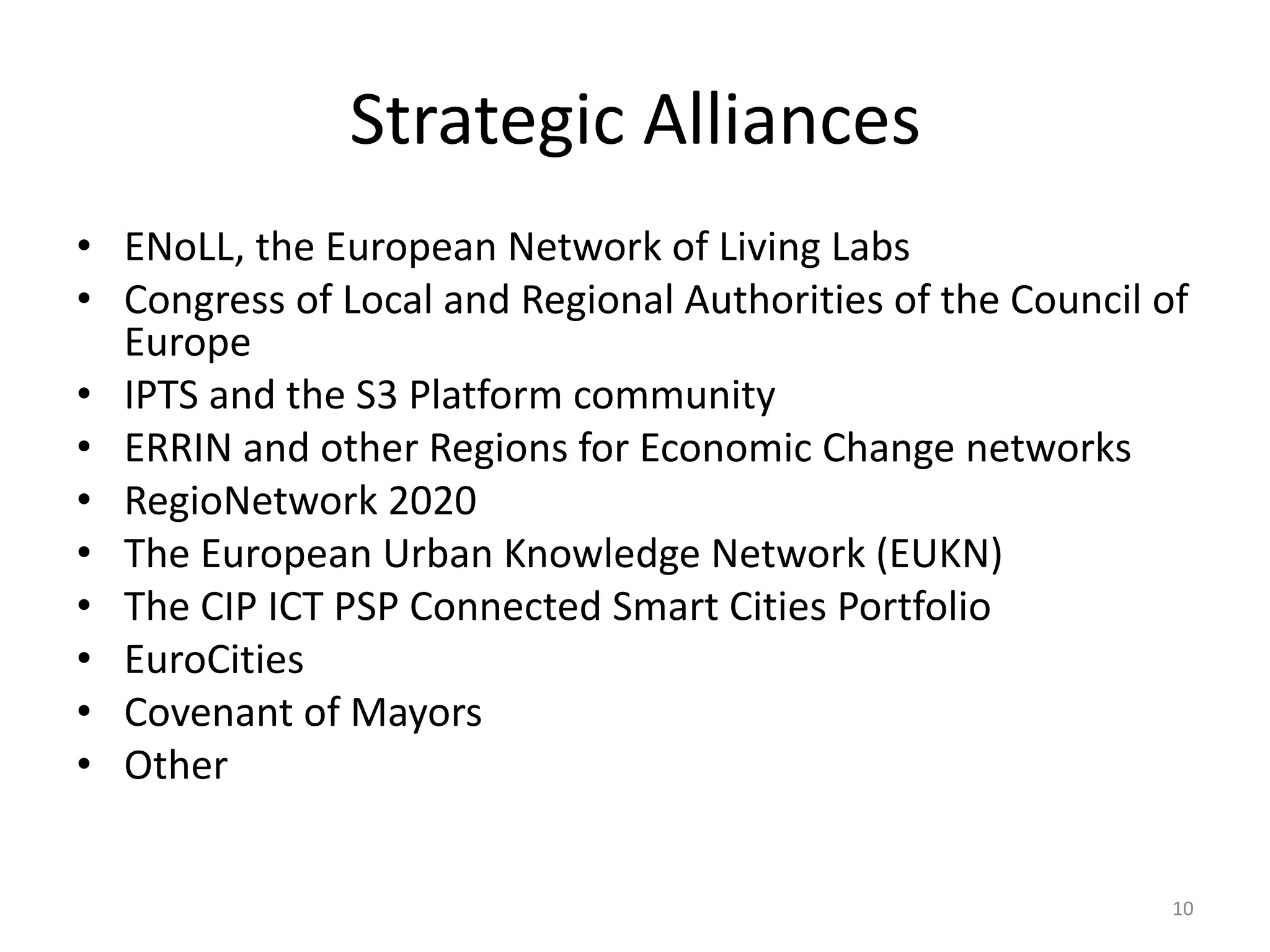The Budapest Manifesto outlines the formation of the Network for Social and Territorial Innovation (NeSTI) to address three challenges through social and territorial innovation. NeSTI will bring together territorial authorities and agencies to develop shared strategies using living labs and citizen-centric approaches. Key activities include collaborating on smart specialization strategies and establishing multi-stakeholder governance for public services and procurement innovation. The timeline outlines initial signatories and conferences to expand the network.











